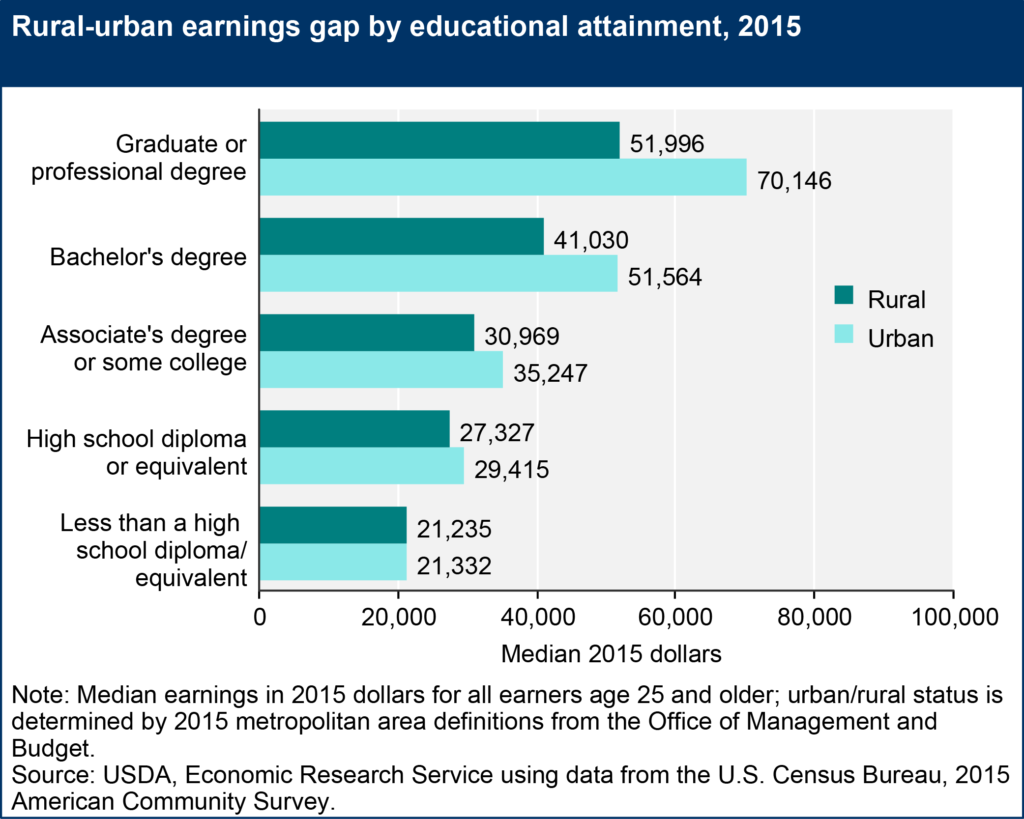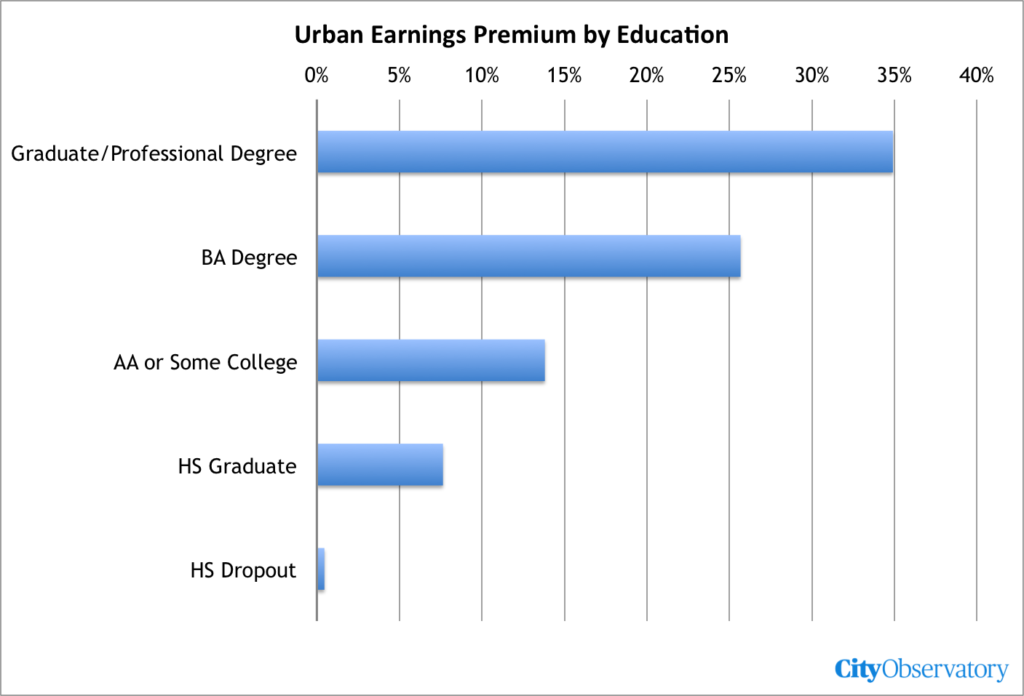The more education you have, the bigger the payoff to living in a city
It’s a well-understood fact that education is a critical determinant of earnings. On average, the more education you’ve attained, the higher your level of earnings. This holds both for individuals, and as we’ve shown for metropolitan areas. But the payoffs to education also depend on where you live. As it turns out, for knowledge workers, pay levels are much higher in cities than in rural areas: on average, someone with a BA or graduate degree makes 25 to 35 percent more if they live in a city than if they live in a rural area. But for those with just a high school diploma, the urban earnings premium is much less, and for those didn’t finish high school, there’s not gain at all.
The much higher returns to education in cities reflect the productivity of urban, knowledge driven economies, and explain why talented workers, especially mobile young ones, are increasingly moving to urban locations.
Let’s take a closer look at the data. The US Department of Agriculture’s Economic Research Service has analyzed data from the Census Bureau on the comparative earnings of urban and rural residents by educational level. The definition of “rural” in this case is the approximately one in seven Americans who live outside the nation’s metropolitan areas. “Urban” is everything else.
The data show the regular stair-step relationship between educational attainment an average earnings: the more education you have, the higher your earnings, on average. This holds for both rural and urban areas. But especially for those who live in urban areas, the returns to education are significantly higher. In 2015, those with a graduate or professional degree living in an urban area earned about $18,000 more than their rural counterparts, urban workers with a bachelor’s degree earned about $10,000 more than those with a BA in rural communities. But at the lower levels of educational attainment, the differences almost disappear. High school dropouts earn almost exactly the same whether they live in an urban area or not.

The importance of urban location to capitalizing on educational attainment is even more apparent when we compute proportionately how much more urban workers earn than their similarly educated rural counterparts. Those with a professional or graduate degree earn one-third more than their rural counterparts. Those with just a BA earn 25 percent more. those with more modest education’s also earn a premium if they live in urban areas, but it declines to zero for those who haven’t finished high school.

It’s also the case that the return to education is higher within urban areas than it is in rural areas. For example, in rural areas, a four-year college graduate makes about 50 percent more than a high school graduate. But in urban areas, a four-year college graduate makes 75 percent more than a high school graduate. So its also the case that the economic incentives (and rewards) for an education are relatively higher in urban areas than in urban ones. It’s also likely to mean that these economic returns to education are more obvious to urban residents than it is to rural ones.
This consistent set of relationships between urban-ness and the economic return to education has at least two important implications.
First, it shows that cities increase the productivity of workers. Cities tend to better match workers to jobs that capitalize on their skills and interests. Cities also help workers acquire new skills. And cities facilitate agglomeration economies, particularly by enabling and incentivizing the innovation that makes workers, firms and the entire economy more productive.
Second, it helps explain why well-educated workers tend to live in cities. If you can earn more living in a city you are likely to do so. Since this relationship is stronger for higher educated workers, they have a larger incentive for living in cities. Those with a high school diploma may only see a modest increase, and therefore have fewer incentives to move to (or stay in cities). This may be affected by cost of living differences, too. If rural areas are cheaper-as they are for many things, particularly housing-this may make them more attractive to less educated workers (who generally spend a higher share of their income on housing, and are therefore relatively more sensitive to housing cost differentials). It also suggests that it will be very difficult to encourage talented workers to move to (or stay in) rural areas:
